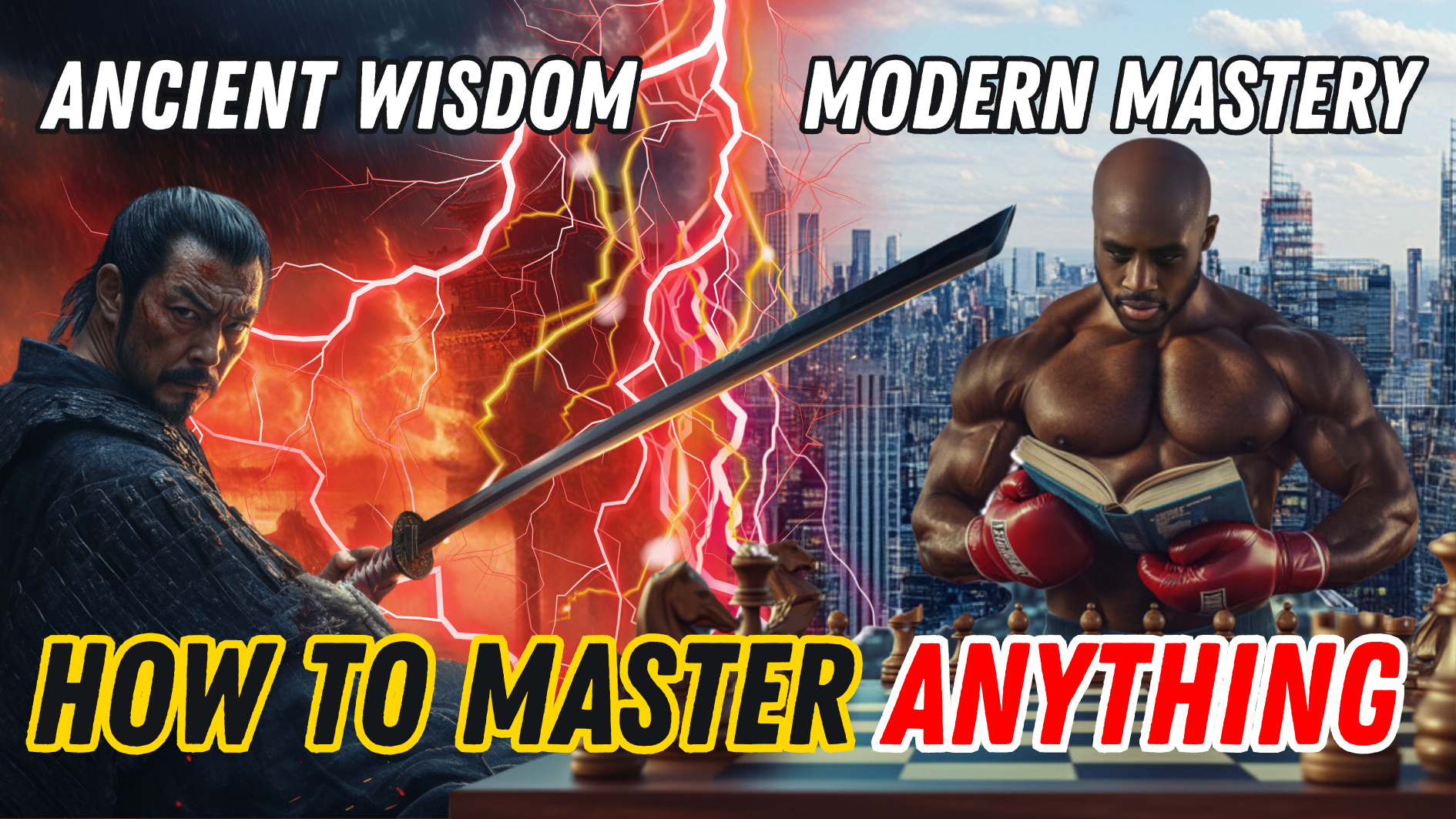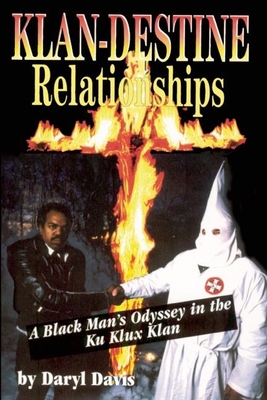I recently watched a documentary called “Accidental Courtesy: Daryl Davis, Race, and America.” Accidental Courtesy was produced by Matt and Noah Ornstein and follows Daryl Davis, an accomplished musician who also happens to be a black man, as he meets with friends he’s made in the Ku Klux Klan (KKK).
Davis has met with various white supremacists and klan members for years, driven by a single question: “How can you hate me when you don’t even know me?” In these meetings, Davis has convinced many to leave the Klan and become advocates of non-violence.
[He details many of those accounts in his book Klandestine Relationships. I’ve summarized the big ideas in that book here.]
However, not all are immediately sold on the power of his approach. The film shows a meeting he has with Black Lives Matter activists Kwame Rose, Tariq Toure, and J.C. Faulk. The interaction becomes heated as they accuse him of being a “pimp at the pulpit” and a “sellout” and accuse him of being self-serving with his unusual hobby of socializing with members of the Ku Klux Klan.
There are even members of the KKK, like Frank Ancona who appear in full Klan garb, embrace Daryl in friendship, but say he can never leave the Klan. The film will challenge many ideas you have about the state of race relations in the United States all while being educational and entertaining.
The following are 12 of the most powerful, thought-provoking quotes I got from the film.
12 powerful quotes from Accidental Courtesy: Daryl Davis, Race & America
“Let’s say you have a group of 20 people who are anti-racist, and all you do is talk about how bad racism is. Well, what good is that group doing? All you’re doing is preaching to the choir.”
Talking in circles among people who already agree with you does little to move the world forward. True progress happens when you step outside your echo chamber and engage those who still hold opposing views. Only by understanding the roots of their fears, misconceptions, and pain can you begin to dismantle the false beliefs that sustain hate. Growth doesn’t happen in agreement; it happens in confrontation—with empathy.
“Until people feel better about themselves, they will look for someone else to step on in order to negatively gain what they cannot positively achieve.”
Insecurity is often the soil in which hatred grows. When someone feels small, powerless, or invisible, they may search for false ways to elevate themselves—often by putting others down. Racism, classism, bigotry—they’re not just about hatred; they’re about misplaced attempts at self-worth. Real change requires helping people heal their own brokenness so they stop trying to wound others.
“People tend to feel comfortable around things with which they’re familiar. And sometimes they may become xenophobic or develop a fear of things that are different. That fear can be overcome. If they go beyond that fear and develop a hatred, that’s harder to overcome.”
Fear of the unfamiliar is a natural human instinct—but it’s also a fragile one. Exposure, conversation, and connection can dissolve fear like mist in the morning sun. But when fear hardens into hatred, it calcifies into something far more dangerous. At that point, it takes sustained, patient effort to chip away at it—and not everyone will succeed. The time to reach people is while they’re still afraid, not after they’ve taught themselves to hate.
“Always keep the lines of communication open with your adversary, regardless of what the topic is. When two enemies are talking, they’re not fighting.”
Conversation is a lifeline. Even if it’s loud, angry, and messy, talking keeps the possibility of understanding alive. Silence, on the other hand, is the breeding ground of violence. As long as two people are willing to exchange words, there’s hope that they can exchange perspectives—and maybe even humanity.
“When you’re ingrained in this stuff, you’re not going to shut it off overnight.”
Belief systems are built over years—layer upon layer of family influence, societal messaging, personal experience, and peer validation. You can’t expect someone to tear all that down in a single conversation. Change is slow, painful, and often invisible at first. Patience isn’t just a virtue here—it’s a requirement.
“I did not respect what he had to say. I respected his right to say it. […] And then a few years later, Roger Kelly quit the Ku Klux Klan.”
Respecting someone’s humanity does not mean validating their beliefs. It means recognizing their potential to change. Daryl didn’t condone Roger Kelly’s racist views—but he created the conditions where those views could be questioned and eventually abandoned. Change begins with respect—not for the idea, but for the person behind it.
“We are living in space-age times but there are too many of us with stone-age minds.”
Our technology races forward, but many of our minds remain shackled to tribalism, fear, and violence—the same instincts that governed primitive societies. We send probes to Mars, yet struggle to reach across a dinner table to someone who looks different from us. The future isn’t held back by machines—it’s held back by mindsets.
“People always say to me ‘Daryl, how can you have this stuff? Why don’t you burn it?’ […] You don’t burn our history, regardless of the good, the bad, and the ugly.”
Erasing history doesn’t heal its wounds. It hides them, allowing ignorance and repetition to take root. Every robe, every hood Daryl collects from a Klansman who quits is not a trophy of hate—it’s a marker of transformation. It’s proof that change is possible, and that the ugliness of our past can, slowly, be undone.
“They can’t know the real me through email or through Facebook. Sitting across from somebody, meeting them and getting that sense of them, that’s the key right there.”
Real human connection can’t be digitized. No screen, no comment thread, no curated profile can replace the unspoken bond formed when two people share space. Eye contact, body language, tone—the little things break down fear and foster understanding. To change hearts, you must be present.
“If you have an adversary, someone with an opposing point of view, regardless of how extreme it may be […] give that person a platform.”
Letting someone speak does not mean endorsing what they say. It means letting them expose the cracks in their own logic. When you listen calmly, without trying to shut them down, they’re often forced to hear themselves—and many for the first time realize the absurdity or cruelty of their views.
“I simply look at the Ku Klux Klan as another culture.”
Daryl approaches racism not as an evil monster to slay, but as a cultural phenomenon to understand. Cultures are learned behaviors, passed down, protected, and justified internally. If hatred is a culture, it can be studied—and more importantly, it can be unlearned.
“I never set out to convert anyone. I just set out to get that answer to my question: ‘How can you hate me when you don’t even know me?’”
Curiosity, not confrontation, was Daryl’s weapon. He wasn’t trying to win debates—he was trying to understand. And that genuine desire for understanding disarmed people. Once they realized they couldn’t answer his simple question, the seeds of doubt were planted. Conversion wasn’t forced—it was self-inflicted through the undeniable power of truth.




